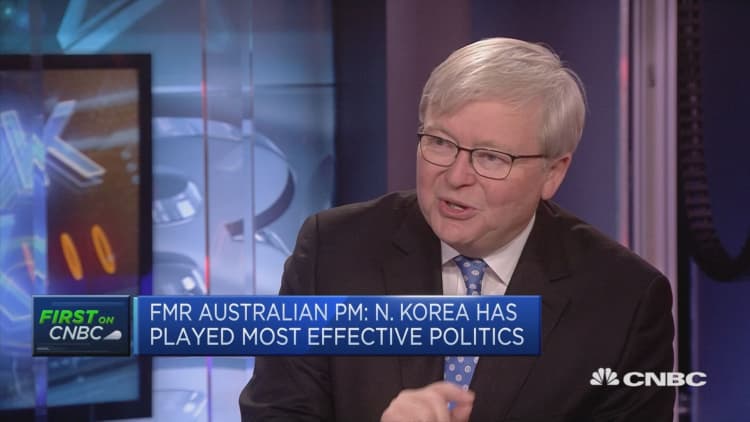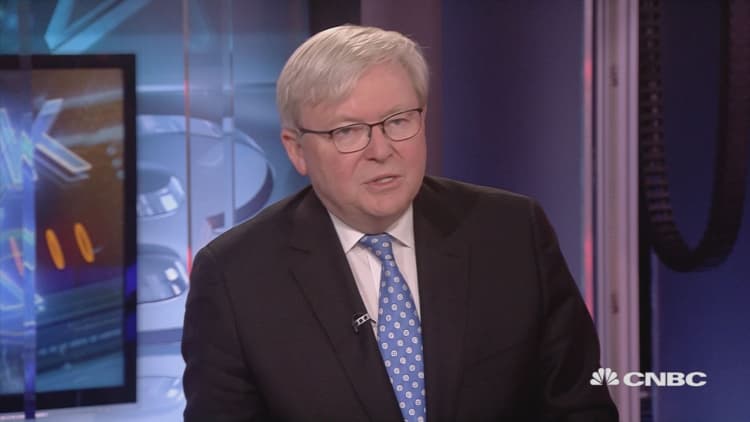The biggest flashpoint for the world's largest superpowers lies in the world of technology, former Australian Prime Minister Kevin Rudd told CNBC.
The former leader said that for U.S.-China relations, this issue eclipsed an escalating trade spat and the ending North Korea's nuclear weapons program.
There is an "undeclared new Cold War on technology," between the U.S. and China, Rudd, now president of the Asia Society Policy Institute, told CNBC Monday. This refers to "information technology in particular," he added.
He cited U.S.-imposed regulations on Chinese telecommunications giant ZTE and mobile manufacturer Huawei, and a subsequent "retaliatory" speech by Chinese President Xi Jinping as recent examples of the tension.

Earlier this month the U.S. Commerce Department banned American companies from selling parts or software to ZTE for seven years, citing the firm's illegal shipping of U.S. goods to Iran. This could mean that ZTE is unable to use Google's Android system on its devices.
Last week it emerged that U.S. prosecutors had been investigating Huawei since 2016 for the same reason.
Moreover, a U.S. telecoms regulator indicated that domestic government programs should not buy from companies that could threaten national security, which would likely include ZTE and Huawei.
Rudd described the technology-based threat as "much more serious," than that of trade tariffs on aluminum and steel, nuclear war on the Korean Peninsula or territorial disputes over the South China Sea, all of which he deemed as "stages of conflict at present."

"There is an undeclared Cold War underway now in the IT sector," Rudd said.
Increased scrutiny from the U.S. on Chinese firms could exacerbate the tension, according to Jonathan Fenby, chairman of the China team at independent research group TS Lombard. "U.S. moves designed to curb China's technological development are likely to act as a fresh spur to its push to expand its cyber capacity," he said in a note Thursday.
Though U.S.-China relations face numerous headaches, President Donald Trump visited his counterpart Xi Jinping in Beijing in November last year. The occasion was marked by camaraderie between the two leaders and the signing of business deals worth billions of dollars.
Regardless, U.S.-China relations are "pointing in a generally negative direction," Rudd said.
"So far the rules of … avoiding incidents at sea and avoiding incidents the air have held," but "we are in difficult, I think, geo-strategic times," he added.

